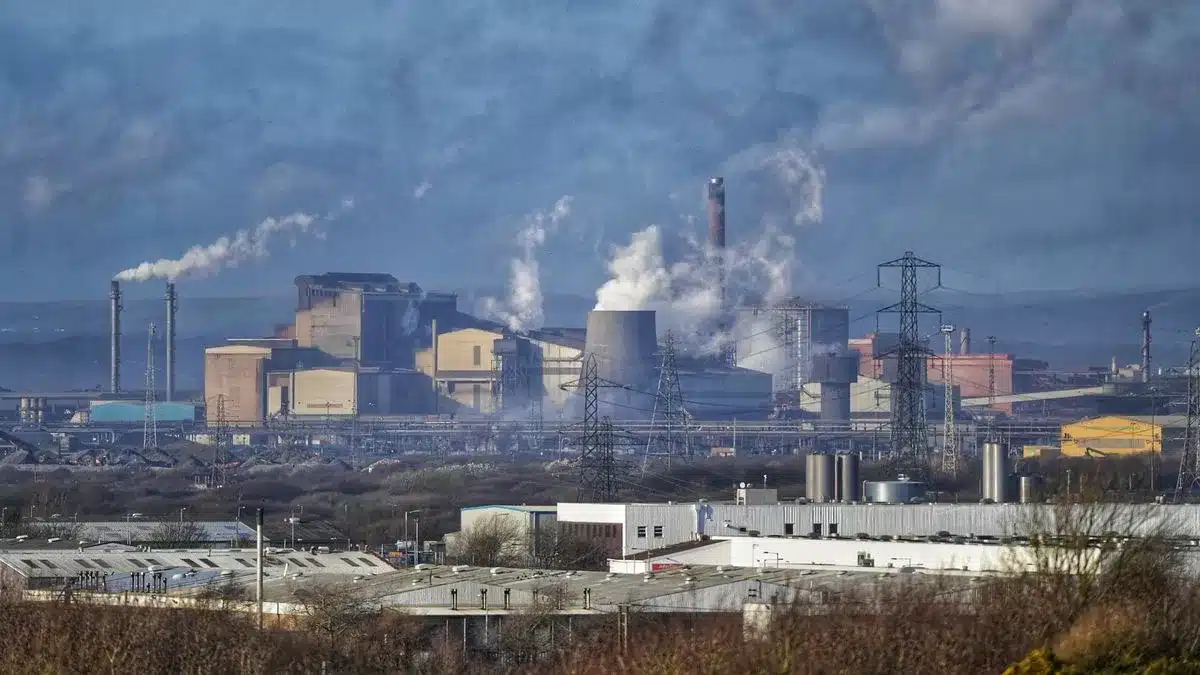Business
Around 3,000 Jobs At Risk At UK’s Biggest Steelworks Despite Government-Backed Package Of Support

LONDON, England – Around 3,000 workers at Britain’s largest steelworks face job losses as part of a government-backed plan announced Friday to make the factory “greener.”
The British government confirmed popular speculation that it will invest up to 500 million pounds ($620 million) in the loss-making Port Talbot steelworks in south Wales, money it claims will ensure the site’s future.
“This proposal is a watershed moment for sustaining ongoing steel production in the United Kingdom, supporting sustainable economic growth, reducing emissions, and creating green jobs,” said Treasury Secretary Jeremy Hunt.
The steelworks’ owner, Tata, will utilize the government subsidies to assist in converting the plant’s two coal-fired blast furnaces to electric arc versions that can run on zero-carbon electricity.
Tata, which employs over 8,000 people in the United Kingdom, will also invest approximately 750 million pounds in the project but has warned that the proposals will result in consultations regarding a “deep potential restructuring” – a euphemism for job losses.
In a second statement issued Friday, the UK’s Department for Business and Trade stated steelworks that the arrangement will only protect about 5,000 jobs from Tata’s total workforce.
Tata stated that the agreement established the groundwork for long-term regional steel production and pledged to hold “meaningful” consultations with labor organizations.
Around 3,000 workers at Britain’s largest steelworks face job losses as part of a government-backed plan announced Friday to make the factory “greener.”
“With the support of the UK government and the dedicated efforts of Tata Steel UK employees and all stakeholders, we will work to transform Tata Steel UK into a green, modern, future-ready business,” said TV Narendran, CEO and Managing Director of Tata Steel.
The agreement comes two months after Tata announced intentions to establish a 4 billion-pound battery facility in the United Kingdom with government subsidies.
Unions were outraged at the prospect of job losses at Port Talbot, which employed over 20,000 people at its peak in the 1960s before cheaper alternatives from across the world took over manufacturing.
“The cost to local people and the wider Port Talbot community will be immense,” said Gary Smith, general secretary of the GMB trade union. “Once again, we have leaders hyping the fantasy land of a ‘just transition,’ while the harsh reality for workers is being laid off.”
After receiving regulatory and planning permits, the 1.25 billion-pound furnaces will be operational within three years.
Around 3,000 workers at Britain’s largest steelworks face job losses as part of a government-backed plan announced Friday to make the factory “greener.”
Tata warned last year that its operations in the United Kingdom would be jeopardized unless it received government support to help it transition to less carbon-intensive electric arc furnaces.
According to Luke Murphy, head of the Institute for Public Policy Research’s fair transition team, the government has “ignored or abandoned” the interests of unions and workers.
“The use of coal in steelworks must end, but this appears to be a bad deal for workers, the Port Talbot community, and Britain,” he said.
He emphasized that Germany has committed to working with unions to protect jobs and has invested more than $53 billion in decarbonizing heavy industry.
“The United Kingdom has nothing on the scale of this commitment to steelworks and has done nothing to improve investment conditions,” he continued.
SOURCE – (AP)




























